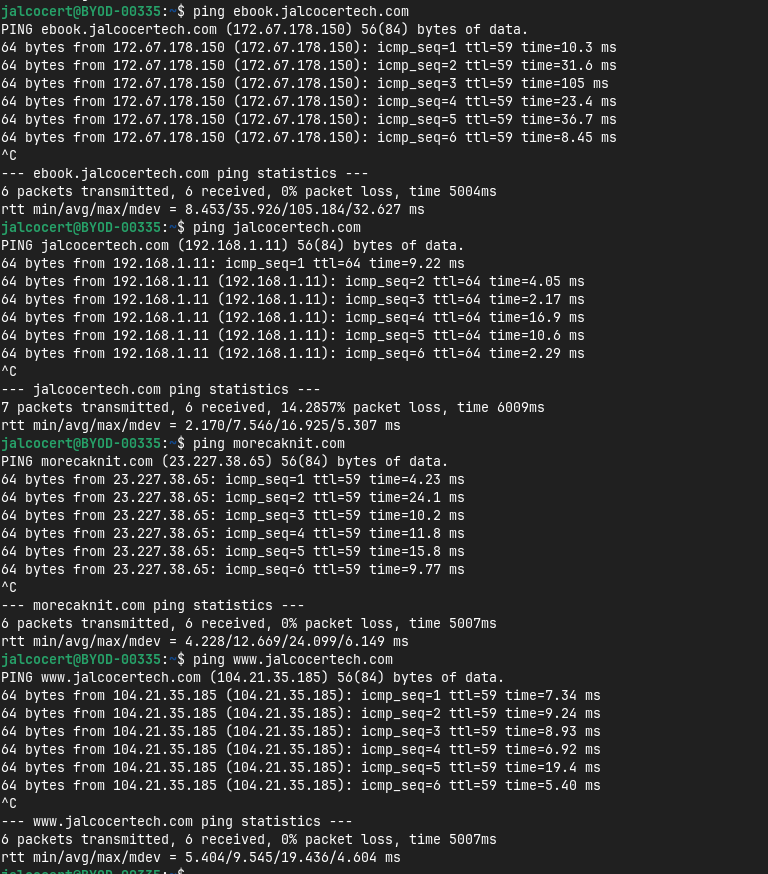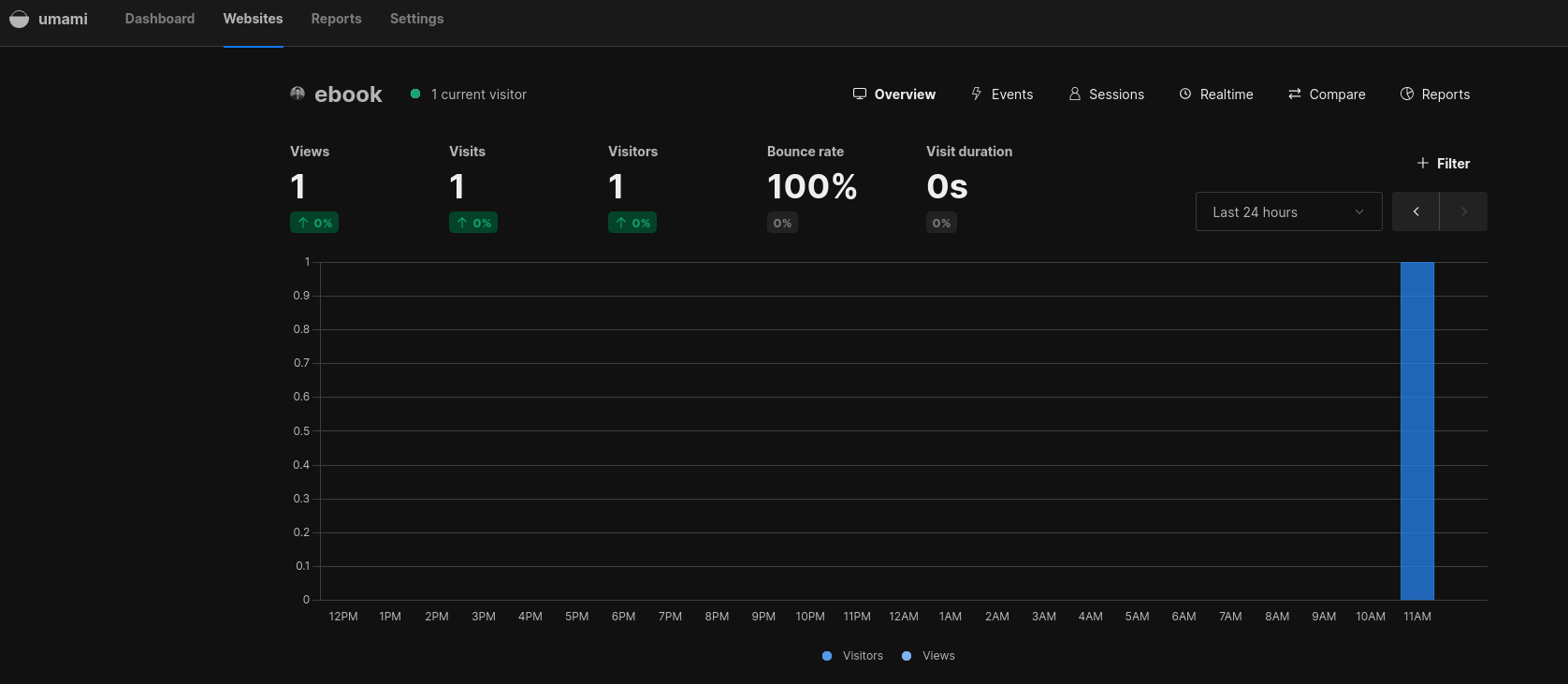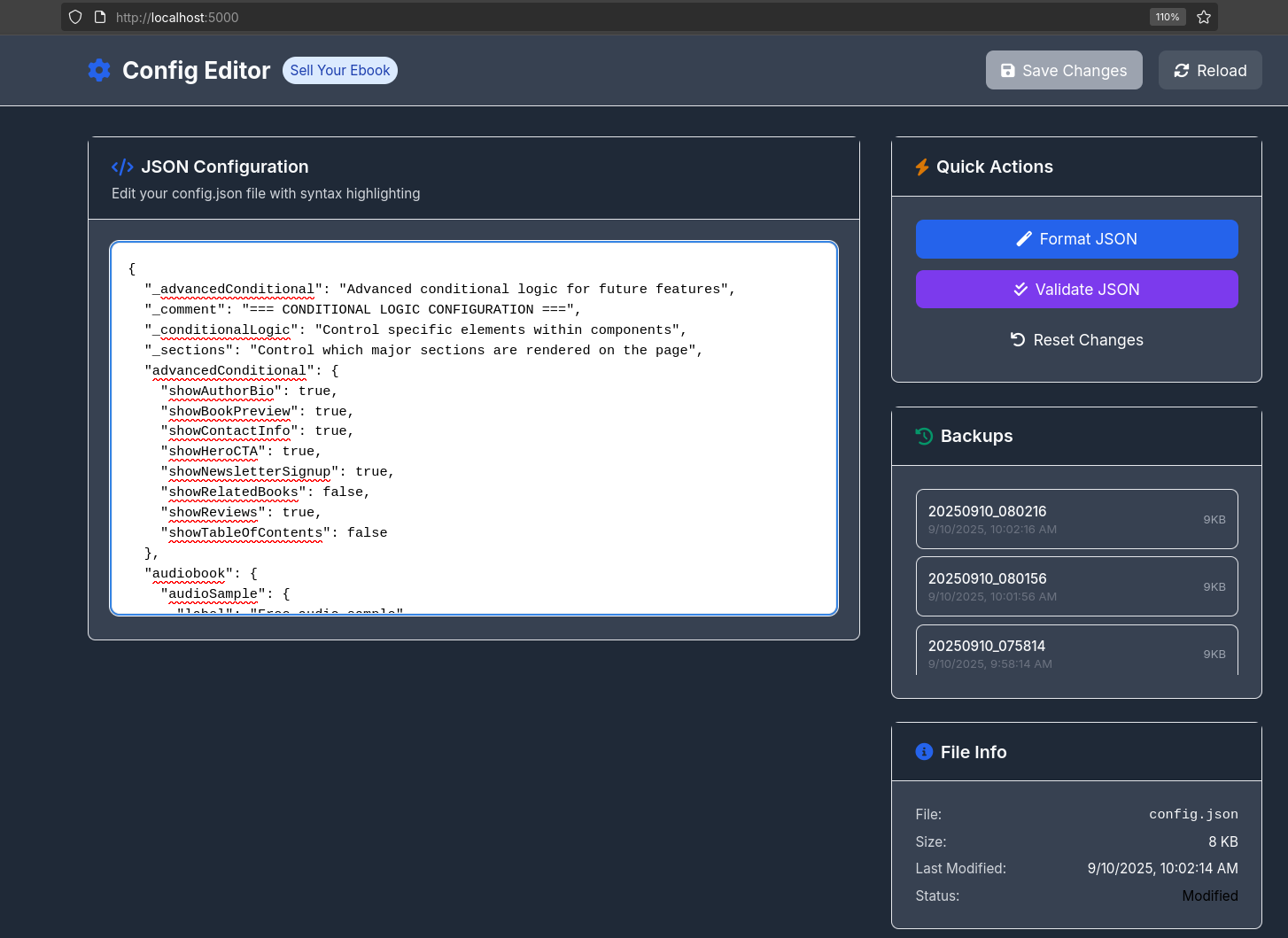AI Driven e-books (as a code) with Pandoc
TL;DR
It all started with Enchiridion
Now here I am, writing 100+ posts of my journey this year.
You know that I love R language and its knitt package
Would it be possible to make ebooks as a code?
It seems it is, as Pandoc is the one doing the job behind R (and it can also do so with ipynb and Py)
Intro
I got inspired recently by the concept of: https://readmake.com/
Some people are selling this kind of things on social media: https://altagency.com/guide/
People with PRO tech knowledge, like: https://kerkour.com/books
Others, just publish freely, like https://github.com/treeman/why_cryptocurrencies, which builds with Pollen and touches the crypto ecosystem
Together with the build in public, which it seems to be a thing.
How about selling an ebook be all about: having an stripe account and proper content that people want to read?
A landing page for your eBook
The inspiration started when I found about: https://github.com/candidosales/landing-page-book-astro-tailwind
Because creating a PDF to launch your ebook is not a secret as I tinkered here
#https://github.com/candidosales/landing-page-book-astro-tailwind
#https://github.com/zenorocha/14habits.com
git clone https://github.com/JAlcocerT/sell-your-ebook
#npm install
npm run dev -- --host 0.0.0.0 --port 4321 #http://192.168.1.11:4321/
#npm run build
#npm install -g serve #serve with npm
#serve -s dist #http://localhost:3000The original theme (also MIT) is awsome and brings a lot of content costomization via
config.json
The theme is oriented towards book selling.You can adapt it so that it becomes a knitting patterns shop
https://morecaknit.com/, and wow, that’d be a shopif competitor!

You know what to tell, its just that… time matters.
So why not accelerating the time to ship ebooks by understanding how to have their skeleton code driven?
And maybe get LLM help for charts creation, data driven parts etc.
Using Sell Your Ebook
You will need containers and a server to deploy this.
The idea to make it as simple as possible is that the docker compose environment variables send information to the config.json of the astro ssg theme that we have been tinkering above.
The result?
You now just need to tweak one place and enjoy the theme, with your stripe payment link included.
git clone https://github.com/JAlcocerT/sell-your-ebook
#cd sell-your-ebook
#make quick-dev #to spin dev server inside container and see :4321 still
#docker compose up astro-prod -d
make quick-prod #to bring the real statically generated prod version to 8090You might just need to adjust the port mapped to the server: http://192.168.1.11:8099/
But for CF tunnels its just: astro-prod:4321, configure it via Zero Trust after you connect to the cf network: https://one.dash.cloudflare.com/
#docker network ls | grep cloudflared_tunnel
docker network connect cloudflared_tunnel astro-prod #connect
#verify
#docker inspect astro-prod --format '{{json .NetworkSettings.Networks}}' | jq
Aaaand this is it: https://ebook.jalcocertech.com/

I could not resist to create a quick FlaskCMS to edit the config.json…
#uv init
#......
make quick-config …this was literally one prompt with Cursor.
A flask CMS JSON editor: works together with the landing-page-book-astro-tailwind Astro theme

So you can go back to your server and do:
#git stash push -m "backup before force pull"
#git pull origin main
# If you need your changes back: git stash pop
# If you don't need them: git stash drop
make quick-prod
docker network connect cloudflared_tunnel astro-prod #connectAt this point, you have your ebook published via cf network, to sth like: ebook.jalcocertech.com
eBooks
Making ebooks is possible with pandoc or MKDoc
Pandoc can write a PDF/epub from .Rmd or
ipynb, that will be for a future post.
See this script
Maybe someone will do something with financial ,miss-conceptions'?
But hey, some people use latex, so if its possible to make a code driven CV in overleaf with Latex…
Why not ebooks?
And how about creating the ebook with R?
If we can create markdown driven websites (thanks to SSGs), even presentations…
We dont need crazy components, nor shortcodes
Just text, images, graphs…How are we not going to create ebooks powered with R?
Lets just Setup R and see how:
# Core R environment
sudo apt install -y r-base r-base-dev
# LaTeX and PDF generation
sudo apt install -y texlive-latex-base texlive-fonts-recommended texlive-fonts-extra texlive-latex-extra
# Pandoc and citation processing
sudo apt install -y pandoc pandoc-citeproc
# Development libraries for R packages
sudo apt install -y libcurl4-openssl-dev libssl-dev libxml2-dev libudunits2-devWe can try knitting a bit, but we have also: https://bookdown.org/yihui/rmarkdown/
| Feature | R Markdown + knitr | bookdown |
|---|---|---|
| Scope | Single document | Multi-chapter book |
| Structure | One file | Multiple files + configuration |
| Cross-references | Limited | Full support |
| Table of contents | Basic | Advanced with navigation |
| Figure numbering | Per document | Across entire book |
| Bibliography | Basic | Advanced with citations |
| Output formats | PDF, HTML, Word | PDF, HTML, EPUB |
| Complexity | Simple | More complex setup |
| Use case | Reports, papers | Books, manuals, documentation |
Creating an Ebook
I mean, an AI Assisted e-book.
After chating a while with cursor, we got this kind of workflow working.
We can go the simple knitt way or the bookdown with proper chapters etc:
#cd example-pdf-knit
#Rscript -e "rmarkdown::render('simple-example.Rmd', 'pdf_document')"
cd example-pdf-bookdown
# Generate PDF
Rscript -e "bookdown::render_book('index.Rmd', 'bookdown::pdf_book')"
# Generate HTML
#Rscript -e "bookdown::render_book('index.Rmd', 'bookdown::gitbook')"
# Generate EPUB
#Rscript -e "bookdown::render_book('index.Rmd', 'bookdown::epub_book')"R Markdown Ebook Workflow Summary:
- Write Chapters as
.Rmdfiles (R Markdown with embedded R code) - Knit Process converts
.Rmd→.md(Markdown + executed R output) - Pandoc Processing converts
.md→ LaTeX → PDF - Final Output is a professional PDF ebook in the
docs/folder
Key Technologies:
- R Markdown (.Rmd) - Write content with embedded R code
- knitr - Execute R code and generate output
- bookdown - Organize multiple chapters into a book
- Pandoc - Convert between document formats
- LaTeX - Professional typesetting for PDF output
- ggplot2/dplyr - Data analysis and visualization
Simple Flow: R Markdown (.Rmd) → knitr → Markdown (.md) → Pandoc → LaTeX → PDF
💡 When to Use Each
Use R Markdown + knitr when:
- ✅ Writing a single report or paper
- ✅ Creating a presentation or slides
- ✅ Making a simple analysis document
- ✅ Need quick output without complex structure
- ✅ Working on a one-off project
Use bookdown when:
- ✅ Writing a multi-chapter book
- ✅ Creating documentation or manuals
- ✅ Need cross-references between sections
- ✅ Want professional book formatting
- ✅ Planning to publish the work
- ✅ Need multiple output formats (PDF, HTML, EPUB)
Conclusions
This is it for now all I got to tinker with ebooks.
We’ve got a Astro statically deployable landing page to share ebooks!
Think of this as the first step to selfpublishing
See also amazon KDP to reach a lot of potential readers
https://kdp.amazon.com/en_US/with a lean approach, aka print on demand
And a draft on ways to create them with RKnit/Pandoc.
But im happy I could link this to my last year thought with the assistant agent for open ai driven ebooks.
ebooks on github
Some people do this kind of cool thing: https://github.com/understanding-astro/understanding-astro-book
You can see the chapters and all source code on the repo.
Just need to place your mail to get it rendered: https://www.ohansemmanuel.com/books/understanding-astro
They Place the content and
.mdin public :)
Same as https://github.com/treeman/why_cryptocurrencies does!
How people send eBooks
Via Stripe:
https://shop.acquisition.com/products/100m-money-models?utm_campaign=13261424-%24100M%20Money%20Models&utm_source=hs_email&utm_medium=email&utm_content=376228484&_hsmi=376228484I guess via stripe + SSR and obfuscation technique that gets clear if your email is in the proper Stripe driven table of users who bought:
https://readmake.com/
- https://it-tools.tech/string-obfuscator
- Stripe Payment Links: https://dashboard.stripe.com/payment-links + some automation like n8n to send the pdf/epub to the buying email
- For the obfuscation, I imagine that there can be some BE check to the provided email and if you ever bought it, you can read the updated de-obfuscated version online anytime
- You can also sell ebooks via amazon or ko-fi.
FAQ
Pandoc and (ipynb or RMD)… 📌
In fact, they all use Pandoc as the core conversion engine.
How the Systems Interrelate
R Markdown &
knitr: In the R ecosystem, you write a document with a mix of text and R code chunks in an.Rmdfile. When you “knit” the document, theknitrpackage first processes the file. It executes the R code chunks, collects the output (text, tables, plots), and creates a new, pure Markdown file that includes the results.Pandoc: This is where the magic happens. The Markdown file generated by
knitris then passed to Pandoc. Pandoc is a standalone, command-line tool that can convert documents between a vast number of formats. It takes the Markdown file and converts it to the final output format, whether that’s HTML, PDF, Word, or another type.Jupyter Notebooks: The workflow for Jupyter Notebooks is very similar, though it’s often more integrated. The Jupyter
nbconverttool handles the initial processing of the.ipynbfile. It executes the code cells (if they haven’t been already) and prepares the content, including code and outputs, for conversion.nbconvertthen uses Pandoc to perform the final conversion from the prepared intermediate format to the desired output format, such as PDF or EPUB.
Essentially, both systems use a two-step process:
First, an engine (knitr for R Markdown, nbconvert for Jupyter) processes the code and generates an intermediate Markdown-like file
Second, Pandoc takes that intermediate file and converts it to the final document format.
The primary difference is the front-end tool and the language-specific processing, but Pandoc is the shared, underlying engine that makes the final document conversion possible.
More Books Stuff
- https://bookstash.io/ - Top books recommended by famous folk, in 3m or less.
Epub to AudioBook with Python: https://github.com/C-Loftus/QuickPiperAudiobook
Converting to epub
A simple Docker-based REST API that converts Markdown to EPUB format using Pandoc. Send markdown content via JSON, get an
EPUBfile back.
- Or just use: https://omnitools.app/pdf/pdf-to-epub
Show and Obfuscate
After been able at ./Z_ebooks/ to create pdf ebooks from markdown, how about obfuscating the ebook to show it online?
Rscript Z_ebooks/render.R \
--input Z_ebooks/web-ebook.md \
--output Z_ebooks/web-ebook.pdf \
--cover Z_ebooks/web-ebook-jalcocertech.pngIf you are aware about few git tricks, lets just get started:
git init
git branch -m main
git config user.name
git config --global user.name "JAlcocerT"
git config --global user.name
git add .
git commit -m "Initial commit: Starting ebook md pdf and obfuscated web sample"
#sudo apt install gh
gh auth login
gh repo create sell-your-ebook --private --source=. --remote=origin --push
#git init && git add . && git commit -m "Initial commit: Starting ebook md pdf and obfuscated web sample" && gh repo create ebook-obfuscate --private --source=. --remote=origin --push